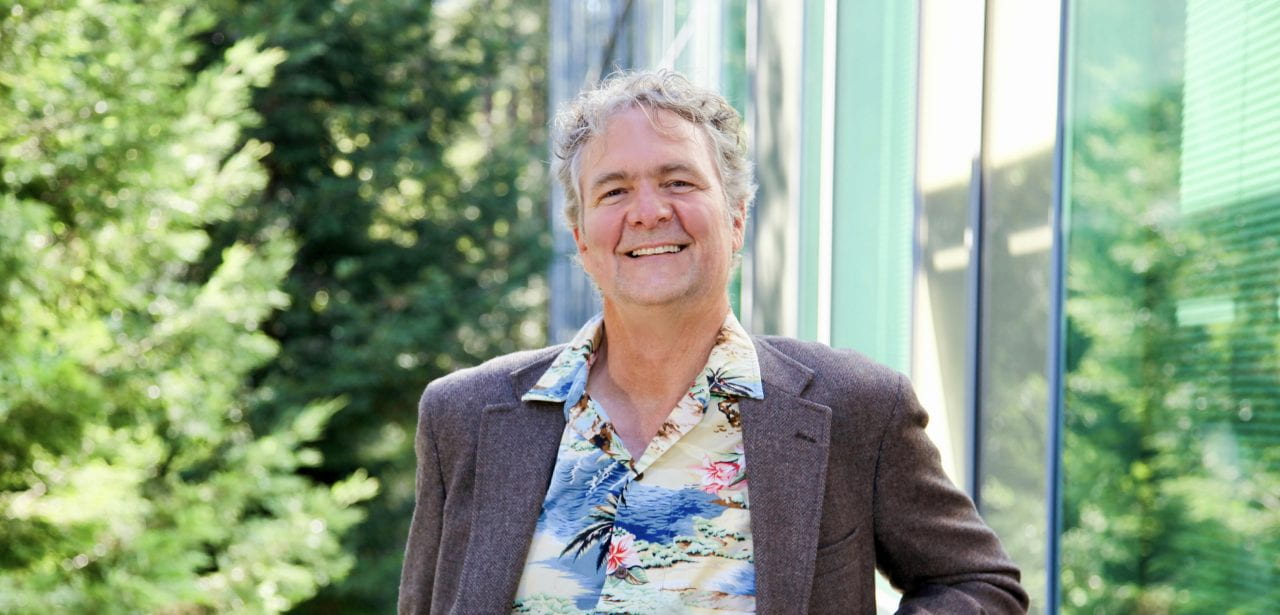
Our Scientific Director
David Haussler
David Haussler’s research lies at the interface of mathematics, computer science, and molecular biology. He develops new statistical and algorithmic methods to explore the molecular function and evolution of the human genome and the development of neural circuits, integrating cross-species comparative and high-throughput genomics data to study gene structure, function, and regulation. He is credited with early work in machine learning and pioneering the use of hidden Markov models (HMMs), stochastic context-free grammars, and the discriminative kernel method for analyzing DNA, RNA, and protein sequences. He was the first to apply the latter methods to the genome-wide search for gene expression biomarkers in cancer. As a collaborator on the international Human Genome Project, his team posted the first publicly available computational assembly of the human genome sequence on the Internet on July 7, 2000. Following this, his team developed the UCSC Genome Browser, a web-based tool that is used extensively in biomedical research.
In applied genomics, he co-founded the Genome 10K Project (now Vertebrate Genome Sequencing Project) to assemble a genomic zoo—a collection of DNA sequences representing the genomes of vertebrate species—to capture genetic diversity as a resource for the life sciences and for worldwide conservation efforts, as well as the Global Alliance for Genomics and Health, to create broad standards for human genomics data. Among the other applied projects he helped initiate are the BRCA-exchange, the largest public data network for BRCA1 and BRCA2 gene variants in the world, and the Pangenome Project, an international effort to establish complete human reference genomes from people of all ancestries around the world, so genomic medicine is unbiased. In 2014, with Olena Vaske he also co-founded the Treehouse Childhood Cancer Project to enable international comparison of childhood cancer genomes.
Currently, his experimental research focuses on the molecular evolution of DNA, RNA, and protein sequences with a special emphasis on neurodevelopment. His lab uses CRISPR, human cerebral cortex organoids, single cell RNA-seq and other technologies to functionally characterize neurodevelopmental genes that were specifically altered in human evolution and have disease associations. His current applied goal is to develop a new generation of Live Cell Biotechnology that will be faster, cheaper, smaller, smarter, and more open, adaptable, flexible, modular and more Internet of Things connected than current lab equipment (taking our cue from the software revolution). He also remains very invested in seeing genomics technologies play a key role in protecting the Earth’s species from extinction, and seeing such technologies used alongside indigenous knowledge and practices in new conservation training programs and projects.
Haussler received his PhD in computer science from the University of Colorado at Boulder. He is a member of the National Academy of Sciences, the National Academy of Engineering, the American Academy of Arts and Sciences and a fellow of AAAS and AAAI. He has won a number of awards, including the 2015 Dan David Prize, the 2011 Weldon Memorial Prize from University of Oxford, the 2009 ASHG Curt Stern Award in Human Genetics, the 2008 Senior Scientist Accomplishment Award from the International Society for Computational Biology, the 2005 Dickson Prize for Science from Carnegie Mellon University, and the 2003 ACM/AAAI Allen Newell Award in Artificial Intelligence.
To learn more about David Haussler’s research, visit the Haussler-Salama Lab website.